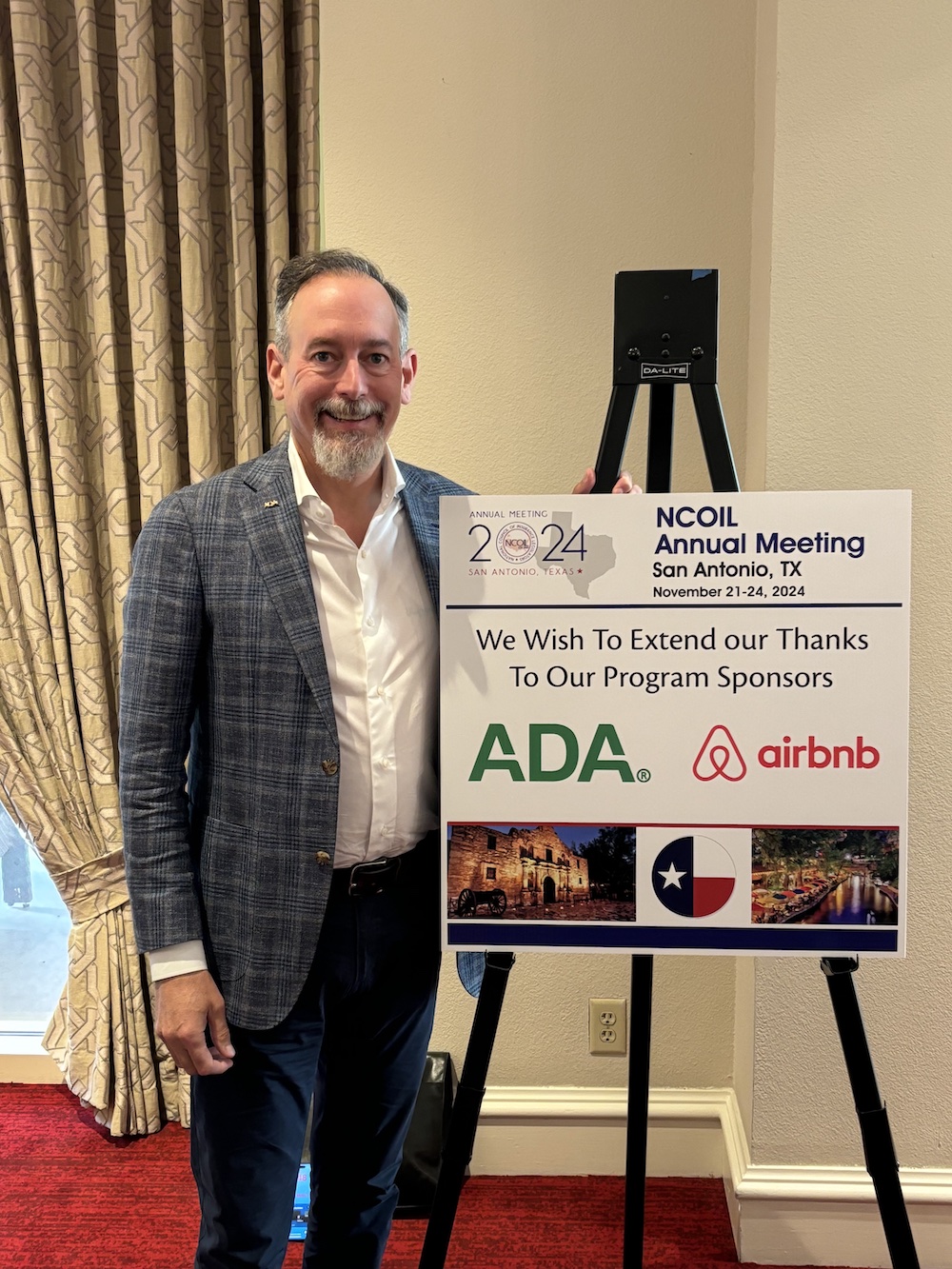ADA joins panel on ERISA at National Council of Insurance Legislators meeting
Association supports narrowing preemption to empower states to enforce insurance laws

ADA trustee Randall Markarian, D.M.D., presented the Association’s perspective on the Employee Retirement Income Security Act of 1974 during the National Council of Insurance Legislators annual meeting Nov. 23 in San Antonio.
ERISA empowers the federal government to regulate self-funded dental plans, and some carriers that administer these plans argue the federal law supersedes state insurance laws that protect patients and providers. In 2023, the Tenth Circuit Court of Appeals held that ERISA preempts provisions of an Oklahoma law regulating pharmacy benefit managers. However, the ADA previously called this decision “a very expansive view” of ERISA.
During the session, Dr. Markarian — who chairs the ADA’s ERISA Special Committee, which was established by the House of Delegates in 2023 to examine new strategies for dealing with ERISA — explained how a broad interpretation of the preemption clause of the law hurts patients and providers alike. He noted the ADA’s position on ERISA is supported by a 2020 Supreme Court case, Rutledge v. Pharmaceutical Care Management Association, which clarified a narrower view of the preemption.
“The time for departments of insurance to take a look at this is now,” he said. “Recent estimates indicate that between 50%-60% of dental coverage in the country is now being offered through self-funded plans.”
NCOIL is a national organization made up of state legislators, many of whom are members of insurance committees. During his presentation, Dr. Markarian informed lawmakers of dental insurance reform laws that are not being enforced because of the broad interpretation of the ERISA preemption.
These laws include prior authorization laws, which have passed in 15 states. Dr. Markarian argued that when a carrier provides prior authorization for a treatment plan, both the patient and the dentist count on the payment.
“It almost acts as a promise to pay,” he said.
However, some carriers cite ERISA preemption as a way to avoid abiding by prior authorization laws, claiming that because they are only administering the claims for self-funded plans, the preemption is in effect.
Dr. Markarian was joined by three other panelists, including Carmel Shachar, J.D., an assistant clinical professor of law and the faculty director of the Health Law and Policy Clinic at Harvard Law School. Her presentation focused on ERISA as a roadblock for states seeking to implement health policy, arguing that “ERISA was never intended to be a health care statute but is one.”
“ERISA preemption continues to deprive states from regulating a significant portion of their health insurance market: employer self-funded plans,” Ms. Shachar said.
The other panelists were Melissa Bartlett, senior vice president of health policy at the ERISA Industry Committee, and Katy Johnson, senior counsel of health policy at the American Benefits Council. These two panelists offered perspectives from employer groups, which are interested in preserving the broad interpretation of ERISA preemption, arguing it is necessary to maintain consistency of health plans across state lines.
Dr. Markarian finished his presentation by clarifying the ADA’s position.
“We are not against ERISA preemption,” he said. “Rather, we support an appropriate narrowing of the preemption that empowers the states to enforce laws that benefit the patients covered by the plans and the providers offering the care.”
Legislators in attendance expressed concerns that ERISA had gone beyond its original intent. They discussed whether individual states could apply for a waiver from ERISA preemption being applied. In addition, some lawmakers questioned why the preemption should be in effect if the self-funded employer group did not have employees in multiple states.
Session moderator New York Assemblyman Jarett Gandolfo closed by noting NCOIL plans to continue the conversation on this topic.
For more information, visit ADA.org/ERISA.



